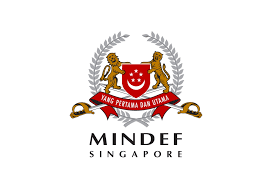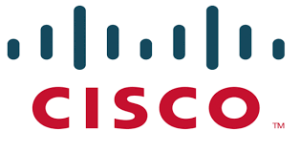Training Course Fees
The full course fees for this training is S$980, before any Government funding.
For Singaporean/PR above 21 years, Training Grants are available.
For Foreigners, no government grants are available.
Grant Information
WSQ funding from SkillsFuture Singapore (SSG) is available to Singaporeans/PRs above 21.
(Both Individuals & Company Sponsored ).
Individual Singaporeans, 25 years & above can also use their SkillsFuture Credits for this training at Intellisoft.
NTUC Members can utilize UTAP Funds to offset 50% of the remaining fees*.
Contact us for more information on How to apply for this SkillsFuture Grant.
Call +65-6250-3575 for Details or WhatsApp Now at +65-9066-9991
up to 70% Grant
$686 Funding by SSG-
Singaporeans Above 40 Years
-
Individuals
-
SME Companies
-
Individuals Can Use SkillsFuture
-
UTAP Funding*
up to 50% Grant
$490 Funding by SSG-
Below 40 Years
-
Individuals
-
SG / PR / MNC Companies
-
SkillsFuture (Singaporeans only)
-
UTAP Funding*
WSQ Grant of up to 50-70%
The Analyze and Visualize Data With Python Training is a practical, hands-on, 2 days training, focused on teaching the participants the key skills used to analyze data using Python.
This intermediate 2-day course focuses on a number of Python packages that are commonly used for data analysis, including: CSV, Numpy, SciPy and Pandas. During the course, participants will manipulate and clean data as well as use the stats library to conduct basic statistical tests.
Additionally, this course focuses on how to write and run simple data analysis programs in Python, and builds on these using some of the powerful extensions available in Python. This will be achieved through hands-on worked examples of real life data problems.
Python is used by analysts who want to go deeper into data analysis or apply statistical techniques, and by most people who turn to Data Science, Machine Learning, Artificial Intelligence, Big Data analysis.
Python is a production-ready language meant for data science and data analysis, meaning it has the capacity to be a single tool that integrates with every part of your workflow! It helps you make sense of your data, quickly, and efficiently.
This Python For Data Analysis Course is a very comprehensive, practical, and hands-on course.
It will guide professionals in the preparation and analysis of research data and interpret the results generated
Key Knowledge Gained:
- Methods for integrating and analysing different types of research data with Python
- Techniques and algorithms available for data analytics by using Python language
- Evaluate the Strengths and weaknesses of different types of analytical methods within Python.
With this knowledge, you’ll also gain the ability to perform several detailed analysis.
Some key abilities the learners will gain are:
- Determine how data should be prepared in Python to facilitate intended analysis
- Research data preparation with Python libraries like Pandas, and Numpy
- Learn summarization and visualization of data with Python Libraries
- Guide analyses of quantitative and qualitative data through the various Python libraries and modules
- Guide interpretation of results generated through the analysis
- Review the Python Analysis of the research data to ensure credibility of the analysis.
On this course, you’ll also look at:
- Conducting simple statistical analyses: The Python Numpy Module
- Combining For/While loops and Numpy for complex analysis
- Using Pandas to import and manipulate datasets.
For this course, you’ll need some basic experience with Python. You can do our Beginners in Python course first if you do not have the basics yet.
Why Use Pandas?
Pandas allows us to analyze big data and make conclusions based on statistical theories.
Pandas can clean messy data sets, and make them readable and relevant.
Relevant data is very important in data science.
What Can Pandas Do?
Pandas gives you answers about the data. Like:
- Is there a correlation between two or more columns?
- What is average value?
- What are the Min & Max values?
Pandas are also able to delete rows that are not relevant, or contains wrong values, like empty or NULL values. This is called cleaning the data.
Data Analysis With Pandas
- Creating, Reading & Writing Data & Files
- Indexing, Selecting & Assigning Data
- Using Summary Functions and Maps to Extract Insights From Data
- Grouping & Sorting Data to Scale up you level of insights. Valuable for larger, complex data sets.
- Solving Data Type & Missing Values Problems
- Renaming & Combining Data to begin making Sense
- Pandas Correlations
- Plotting Pandas Data
- Quiz & Practical Exercises for analyzing data
Data Analysis Project With Pandas & Python.
DETAILED COURSE OUTLINE
COURSE INTRODUCTION:
Introduction to Python for Data Analysis
- Introduction to Python
- Introduction to Anaconda & JupyterLab
- The Python Standard Libraries
Installing Python
- Anaconda, JupyterLab
- Installing additional packages
Anaconda & JupyterLab
- Using Anaconda
- Working with environments
- Launching JupyterLab
- Working in JupyterLab
- Using Jupyter Notebooks
- Basics of running code
- Markdown
- Shutting down kernels and the Jupyter Server
MODULE 1: INTRODUCTION TO PANDAS
Learning Objective 1: Learners will be able to assess & plan data preparation based on the required analysis
- Data Types and Suitable Analysis
- Assess Data using Pandas library in Python using Dataframs as the primary method.
- Pandas Series and DataFrames
- Which data structure should I use?
- Pandas DataFrame
Using Pandas functions
- Creating DataFrames
- Importing data into a DataFrame
- Uploading data in JupyterLab
Accessing data within DataFrames
- Accessing specific rows
- Accessing specific columns
- Accessing data subsets by name or position
Manipulating DataFrames in Pandas with in Python
- Making changes in place
- Renaming columns and rows
- Replace a single value
- Replace multiple values
- Add data to a DataFrame
- Remove rows or columns
- Filter based on condition
- Sort data
Working with data in DataFrames
- Calculating summary statistics
MODULE 2: DATA PREPARATION FOR ANALYSIS
Learning Objective 2: Learners will be able to transform data for analysis
- Import & Export Data from files using Pandas Data frames
- Clean, Sort, Filter Data and Prepare for Analysis within Pandas library
MODULE 3: DATA SUMMARIZATION & VISUALIZATION
Learning Objective 3: Learners will be able to visualize data using charts
- Functions & Methods of Data Aggregation using Pandas library
- Group & Pivot Data using Pandas
- Data visualization with Matplotlib & Seaborn Libraries
MODULE 4: DATA ANALYTICS
Learning Objective 4: Learners will be able to analyze using statistical techniques
- Statistical analysis techniques with Pandas library in Python
- Time Series analysis with Python libraries
- Using Correlation and Linear Regression in Python
- Techniques for Categorical Data Analysis in Python
The Analyze and Visualize Data With Python course is a 2-day course focusing on the key Python packages that are most useful for data analysis, including: CSV, Numpy, SciPy and Pandas.
During this Data Analysis With Python training course, participants will manipulate and clean data as well as use the stats library to conduct basic statistical tests. Additionally, this course focuses on how to write and run simple data analysis programs in Python, and builds on these using some of the powerful extensions available in Python.
Analyze and Visualize Data With Python Training: What You Need To Get Started
This Python course is designed for beginner & intermediate users who wish to become an application developer by using Python, which is a widely used general-purpose, high-level programming language. It is a classroom-based course that covers the essential topics to start programming with Python.
Basic prior knowledge on Python programming is required. If you don’t have the basics of Python, we recommend that you attend the Introduction to Python training first.
WSQ Grant of up to 50-70%
This course is for people who want to analyze a lot of data quickly and gain insights that are not available easily.
We use the Python programming language, which is popular among data analysts and data scientist.
A number of popular Python libraries and packages like Numpy, Pandas and SciPy are covered in this training. If you wish to learn how to use Python for Data Analysis, then this training is for you.
The Analyze and Visualize Data With Python course is a 2-day course focusing on the key Python packages that are most useful for data analysis, including: CSV, Numpy, SciPy and Pandas.
During this Data Analysis With Python training course, participants will manipulate and clean data as well as use the stats library to conduct basic statistical tests. Additionally, this course focuses on how to write and run simple data analysis programs in Python, and builds on these using some of the powerful extensions available in Python.
This course is for people who want to analyze a lot of data quickly and gain insights that are not available easily.
We use the Python programming language, which is popular among data analysts and data scientist.
A number of popular Python libraries and packages like Numpy, Pandas and SciPy are covered in this training. If you wish to learn how to use Python for Data Analysis, then this training is for you.
This Python For Data Analysis Course is a very comprehensive, practical, and hands-on course.
It will guide professionals in the preparation and analysis of research data and interpret the results generated
Key Knowledge Gained:
- Methods for integrating and analysing different types of research data with Python
- Techniques and algorithms available for data analytics by using Python language
- Evaluate the Strengths and weaknesses of different types of analytical methods within Python.
With this knowledge, you’ll also gain the ability to perform several detailed analysis.
Some key abilities the learners will gain are:
- Determine how data should be prepared in Python to facilitate intended analysis
- Research data preparation with Python libraries like Pandas, and Numpy
- Learn summarization and visualization of data with Python Libraries
- Guide analyses of quantitative and qualitative data through the various Python libraries and modules
- Guide interpretation of results generated through the analysis
- Review the Python Analysis of the research data to ensure credibility of the analysis.
On this course, you’ll also look at:
- Conducting simple statistical analyses: The Python Numpy Module
- Combining For/While loops and Numpy for complex analysis
- Using Pandas to import and manipulate datasets.
For this course, you’ll need some basic experience with Python. You can do our Beginners in Python course first if you do not have the basics yet.
Why Use Pandas?
Pandas allows us to analyze big data and make conclusions based on statistical theories.
Pandas can clean messy data sets, and make them readable and relevant.
Relevant data is very important in data science.
What Can Pandas Do?
Pandas gives you answers about the data. Like:
- Is there a correlation between two or more columns?
- What is average value?
- What are the Min & Max values?
Pandas are also able to delete rows that are not relevant, or contains wrong values, like empty or NULL values. This is called cleaning the data.
Data Analysis With Pandas
- Creating, Reading & Writing Data & Files
- Indexing, Selecting & Assigning Data
- Using Summary Functions and Maps to Extract Insights From Data
- Grouping & Sorting Data to Scale up you level of insights. Valuable for larger, complex data sets.
- Solving Data Type & Missing Values Problems
- Renaming & Combining Data to begin making Sense
- Pandas Correlations
- Plotting Pandas Data
- Quiz & Practical Exercises for analyzing data
Data Analysis Project With Pandas & Python.
DETAILED COURSE OUTLINE
COURSE INTRODUCTION:
Introduction to Python for Data Analysis
- Introduction to Python
- Introduction to Anaconda & JupyterLab
- The Python Standard Libraries
Installing Python
- Anaconda, JupyterLab
- Installing additional packages
Anaconda & JupyterLab
- Using Anaconda
- Working with environments
- Launching JupyterLab
- Working in JupyterLab
- Using Jupyter Notebooks
- Basics of running code
- Markdown
- Shutting down kernels and the Jupyter Server
MODULE 1: INTRODUCTION TO PANDAS
Learning Objective 1: Learners will be able to assess & plan data preparation based on the required analysis
- Data Types and Suitable Analysis
- Assess Data using Pandas library in Python using Dataframs as the primary method.
- Pandas Series and DataFrames
- Which data structure should I use?
- Pandas DataFrame
Using Pandas functions
- Creating DataFrames
- Importing data into a DataFrame
- Uploading data in JupyterLab
Accessing data within DataFrames
- Accessing specific rows
- Accessing specific columns
- Accessing data subsets by name or position
Manipulating DataFrames in Pandas with in Python
- Making changes in place
- Renaming columns and rows
- Replace a single value
- Replace multiple values
- Add data to a DataFrame
- Remove rows or columns
- Filter based on condition
- Sort data
Working with data in DataFrames
- Calculating summary statistics
MODULE 2: DATA PREPARATION FOR ANALYSIS
Learning Objective 2: Learners will be able to transform data for analysis
- Import & Export Data from files using Pandas Data frames
- Clean, Sort, Filter Data and Prepare for Analysis within Pandas library
MODULE 3: DATA SUMMARIZATION & VISUALIZATION
Learning Objective 3: Learners will be able to visualize data using charts
- Functions & Methods of Data Aggregation using Pandas library
- Group & Pivot Data using Pandas
- Data visualization with Matplotlib & Seaborn Libraries
MODULE 4: DATA ANALYTICS
Learning Objective 4: Learners will be able to analyze using statistical techniques
- Statistical analysis techniques with Pandas library in Python
- Time Series analysis with Python libraries
- Using Correlation and Linear Regression in Python
- Techniques for Categorical Data Analysis in Python
Analyze and Visualize Data With Python Training: What You Need To Get Started
This Python course is designed for beginner & intermediate users who wish to become an application developer by using Python, which is a widely used general-purpose, high-level programming language. It is a classroom-based course that covers the essential topics to start programming with Python.
Basic prior knowledge on Python programming is required. If you don’t have the basics of Python, we recommend that you attend the Introduction to Python training first.
WSQ Grant of up to 50-70%

SkillsFuture Ready
Singaporeans can use $500 SkillsFuture Credits for this training to offset the course fees.
Contact us for advise on how to go about claiming your SkillsFuture.
Get Started Today!

Learn By Doing
You learn best when you Do It Yourself.
We teach you, step by step, how you can learn new skills, build your knowledge and enhance your career prospects quickly & easily, with Practical Tips & Tricks!
Do You Have Any Questions or Need a Quotation?
Simple. Just tell us what you need. We’ll be glad to help you!
Some of the companies that experienced our trainings
















How To Register
Register For Analyze and Visualize Data With Python Training in Singapore.
- Call us at +65 6250-3575, SMS / WhatsApp: +65 9066–9991
- Send an email to training@intellisoft.com.sg OR
- Submit an online enquiry if you have any questions regarding Analyze and Visualize Data With Python training.
Note: This class is a very practical, and hands-on workshop session. It requires you to take part in a lot of exercises during the class. A laptop with the required software pre–loaded is provided to each participant for use during this workshop.
Join Python class in Singapore today, and learn the Fundamentals of Python Data Analysis easily, with step by step instructions, and helpful, patient, Certified Trainers to guide you.
We also provide Corporate Training on Analyze and Visualize Data With Python in Singapore, and Asia, provided you have a group of participants wanting to learn Python Data Analysis.